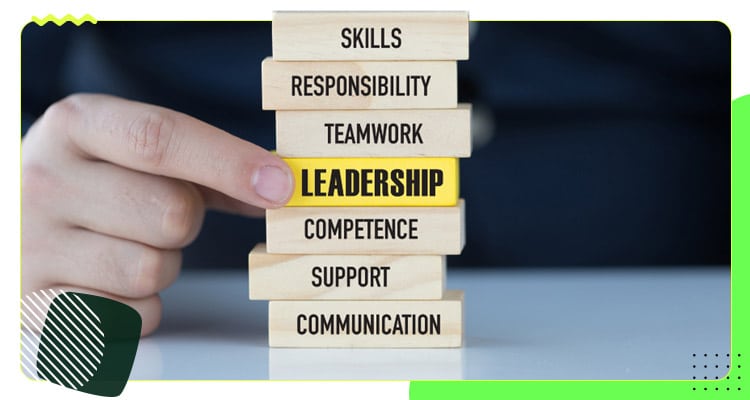Spotting a remote leader benefits the company.
The right ones can ensure the company’s continued success in more ways than one, from improving the overall client experience to optimizing processes.
So, if you’re a remote manager, here are some qualities that indicate someone’s leadership potential:
Has High Leadership Potential and Engagement Levels

Most managers tend to focus on an employee’s performance.
While this is great, remember that some high-performing employees aren’t always necessarily suitable for leadership. Many of them might not enjoy handling a team of people.
Instead, look at someone’s potential.
Do they already have the necessary skill set for the job and are they willing to grow?
Further, observe how engaged they are with their work—do they ask relevant questions and offer helpful suggestions?
Sees Failure As a Learning Opportunity

Mistakes and other mishaps are normal and part of the human experience.
However, instead of getting hung up on their errors, potential leaders see these as learning opportunities—mindful that it doesn’t happen again.
It’ll also help them improve their performance further while taking responsibility for their blunders.
Communicates and Listens Well

A good leader should be able to communicate effectively, especially in a remote work environment where you don’t see your colleagues in person.
Of course, they should also know how to listen well, as this enables them to make better and more informed decisions.
Seeks to Learn More

Potential leaders have an appetite for learning.
They always want to improve and thus seek personal and professional growth opportunities.
Take remote workers with online writing jobs, for example. With AI use looming large, many want to pick up a few skills to future-proof their career.
Have Accountability

Again, errors can occur at any time at any job.
A potential leader must have a sense of accountability and own up to their mistakes instead of pointing fingers at others.
Can Multitask

Once you’ve found someone who can potentially be a leader, observe if they can multi-task effectively.
This skill might come easier for others (like those with virtual assistant jobs, for example).
However, they should be able to handle several responsibilities without compromising the quality of their work.
Has Emotional Intelligence and Empathy

Lastly, don’t forget to check if the potential leader in your remote team has empathy and emotional intelligence.
Are they a team player? Do they offer to help other team members? Do they also foster good relationships with others?
If the answer to these questions is yes, then you’ve got a potential remote leader on your hands.
So, now that we’ve established that one of your team members can lead a team, how do you develop them into an effective leader?
Start Mentoring As Soon As Possible

The best time to start developing a leader is on their first day.
As soon as your remote employee has gone through the onboarding process, track their progress.
Take note of their strengths and weaknesses, as well as their potential and interest in becoming a remote leader themselves. Provide advice and opportunities, and do everything you can to nurture that spark.
Leave Room for Leadership Opportunities

Give your budding leader opportunities to take charge.
You don’t immediately have to throw them into a huge project.
You might start by having them lead a team meeting, for instance. Or, assign them a task that allows them to demonstrate their initiative.
Letting your remote employees take charge can make them more confident in their leadership skills.
Plus, it will give you an insight into how they might handle blockades and other unexpected situations.
Once you do, you can formulate a plan on how to develop them further.
Be a Proactive Remote Leader Yourself

A good remote leader is willing to disclose pertinent information with their team.
(Just make sure such information isn’t confidential and illegal to share and can help improve the team as a whole.)
As a remote manager, keep your communication lines open. Be willing to hear out your employees, whether it be for small talk or more important issues.
Establishing a camaraderie with your team members makes it easier to lead.
Developing Remote Leaders

Developing someone into a leader takes some time and patience.
You need to monitor their work performance while evaluating their potential and leadership qualities (if there are any). Don’t forget to factor in their inclinations to be a remote leader too.
When you find someone who ticks all the boxes, help them realize their full potential so your remote work environment becomes even better.
On that note, if you’re looking for an opportunity to work online, check out Remote Staff’s job listings. It’s always updated and has positions in various industries.
Interested? Register now!

